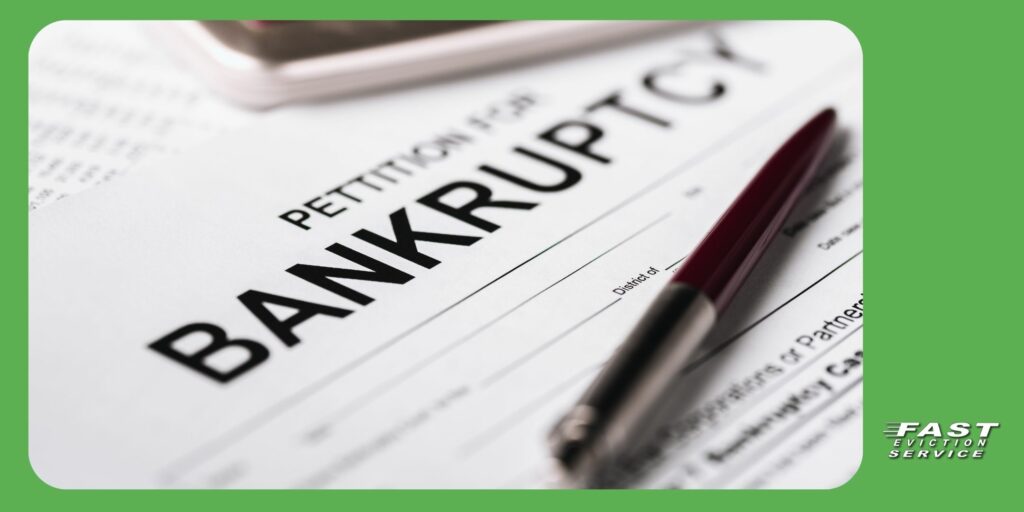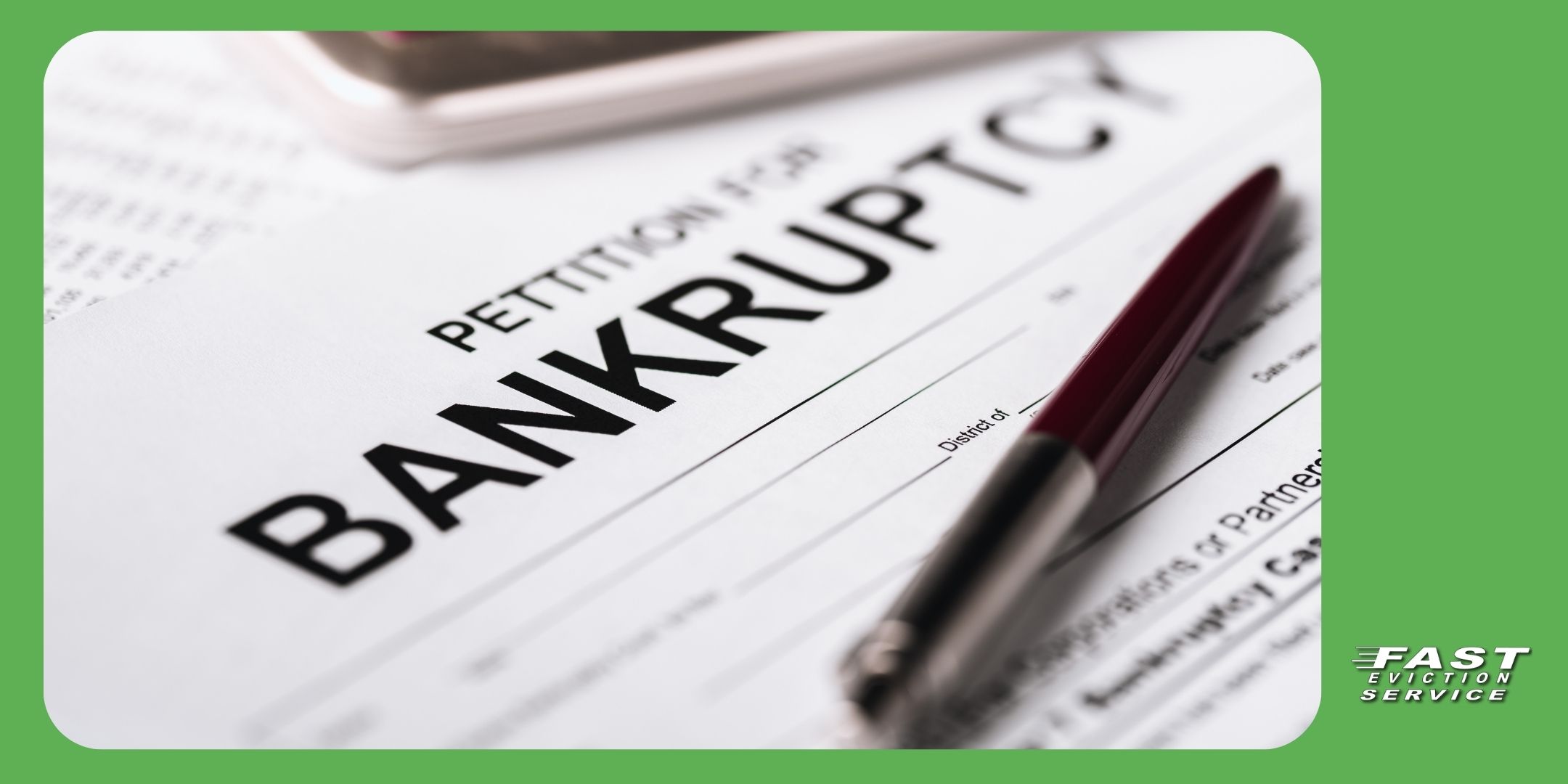Updated 8/15/24
When it comes to managing rental properties, landlords may face challenging situations, such as dealing with tenants who file for bankruptcy. Understanding how bankruptcy and evictions intersect is crucial to protect your property and your income. This article will guide you through the process and provide clarity on your rights as a landlord.

The Impact of Bankruptcy on Evictions
Bankruptcy can complicate the eviction process, but it doesn’t necessarily mean you’re without options. When a tenant files for bankruptcy, an automatic stay is typically issued by the court. This stay halts all collection activities, including evictions. However, this doesn’t mean the eviction is off the table; it just means the process may be delayed.
Types of Bankruptcy and Their Effects
There are different types of bankruptcy, primarily Chapter 7 and Chapter 13, each impacting evictions differently. In Chapter 7 bankruptcy, tenants usually aim to discharge debts and start fresh. If your tenant files under Chapter 7, you may need to wait for the bankruptcy court to lift the automatic stay before proceeding with eviction.
On the other hand, Chapter 13 involves a repayment plan that allows tenants to catch up on past-due rent. In this case, if the tenant continues to pay rent according to the plan, you might have to pause the eviction process. However, if they fail to adhere to the payment plan, you can request the court to lift the stay and move forward with eviction.
Exceptions to the Automatic Stay
There are scenarios where the automatic stay may not prevent an eviction. For instance, if you already obtained an eviction judgment before the tenant filed for bankruptcy, the eviction process can generally proceed. Additionally, if the tenant is endangering the property or engaging in illegal activity, you can petition the court to lift the stay immediately.
Steps to Take as a Landlord
As a landlord, it’s essential to act swiftly and within the legal framework when dealing with bankruptcy and evictions. Here are some steps you can take:
- Consult an Attorney: Bankruptcy laws can be complex, and an experienced attorney can help navigate the legal intricacies and protect your rights.
- File a Motion to Lift the Stay: If applicable, you can file a motion to lift the automatic stay, allowing the eviction to proceed.
- Keep Records: Document all communication and payments related to the bankruptcy and eviction process. This documentation will be crucial if you need to present your case in court.
Navigating bankruptcy and evictions can be challenging, but understanding your rights and the legal process can help you manage the situation effectively. While bankruptcy may delay the eviction process, it doesn’t necessarily prevent it. By taking the right steps and seeking professional guidance, you can protect your rental property and ensure that your interests are safeguarded.
If you need assistance with managing evictions or understanding your rights as a landlord, contact us today for a free consultation. We’re here to help you navigate these complex situations with confidence.





